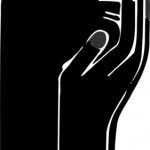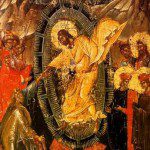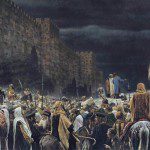
Dulce et Decorum est pro patria mori
“It is sweet and proper to die for one’s country.” The Roman poet Horace wrote this line, but many of us first encountered it in Wilfred Owen’s poem about soldiers in World War I, “coughing like hags,” many of whom “had lost their boots, / but limped on, bloodshod,” with “incurable sores on innocent tongues.” Among the many 20th-century poems written to urge us into awareness of the costs of war, this one is one of the most frequently quoted. Its final lines deserve to be revisited every time we are called upon to fund new forms of violence. If you could see the sickening, horrifying effects of the weapons we use on one young person, he reasons,
My friend, you would not tell with such high zest
To children ardent for some desperate glory,
The old Lie: Dulce et decorum est
Pro patria mori.
Lent is a time to reflect on suffering—the suffering of Christ and the suffering of the “little ones” in whose eyes we see divine light refracted. Today I think of the extraordinary sufferings of the Syrians, among the many who are displaced, damaged and undone by loss and brutal injury. It is a good time to reread Owen’s poem, and many that have followed it, crying out to God and humanity as atomic bombs and daisy-cutters and white phosphorus and assault rifles and stinger missiles and biological and chemical weapons have left in contaminated soil a trail of human anguish only partially veiled by flags and slogans and the rhetoric of fear.
Poems are good antidotes to propaganda. No one who has spent time reading them closely and taken in the kind of truth good poems tell can continue to swallow the easy mass-produced abstractions that pass for information. Propaganda numbs the mind. Poetry activates it. And even though poetry has often enough been pressed into the service of power, it resists the sort of packaging and processing propaganda relies on. It’s a little harder to flatten a poem into submission and prescribed shape than “data.” Sometimes a line break or an oddly placed comma can crack open a small fissure through which a critical thought may pass. Sometimes those fissures are large. The sharpened edge of a poetic line may make be an effective, permanent inoculation against propaganda. It’s hard, for instance, having read Owen’s poem, to accept recruitment propaganda in quite the unquestioning way the recruiters might hope. So I offer these lines again, hoping they will equip us to read the headlines with discernment and keep us vigilant about what violence is done in our name, supposedly on our behalf:
. . . If you could hear, at every jolt, the blood
Come gargling from the froth-corrupted lungs,
Obscene as cancer, bitter as the cud(12)
Of vile, incurable sores on innocent tongues,
My friend, you would not tell with such high zest(13)
To children ardent(14) for some desperate glory,
The old Lie; Dulce et Decorum est
Pro patria mori.
We might still find reasons to send young people to wars waged where children play in the streets, but perhaps words like these will weigh in the balance as we consider what we vote for and buy and affirm. Perhaps the right poem can shore up our courage and deepen our incentives to join rescue and relief efforts, share reliable news sources, and pray with our feet and hands and voices and votes for others’ safety and peace.












